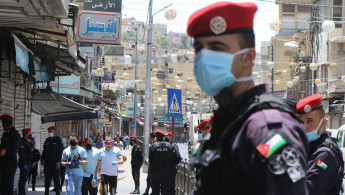11 million jobs lost in MENA due to Covid-19: report
The report found "the equivalent of 11 million full-time jobs were lost in the MENA region as a result of the Covid-19 pandemic, bringing the total of children living in monetary poor households to more than 60 million".
In the first three quarters of 2020, 41 million full-time equivalent jobs have been lost, with the workers in the informal sector being the most affected.
Additionally, the World Bank estimated that migrants’ monetary contributions to the MENA region may have reduced by a quarter in 2020, as a direct consequence of Covid-19.
In Oman, for example, oil prices dropped due to coronavirus, prompting a "severe economic slowdown" in the country.
As a result, the government is implementing structural reforms and expenditure cuts that have the potential to impact the provision of social services for children.
|
The impact of the economic downturn in several countries in the Middle East not only falls disproportionately on children, but also on women – both of which are traditionally vulnerable sections of society.
Evidence shows that the economical downfall increases the risk of negative coping mechanisms "such as child, early and forced marriages, which disproportionately impact girls".
In Yemen, service providers expressed concern that child marriage would increase during the pandemic because, for poor families, it was now more affordable to marry young girls.
Similarly in Jordan, rates of child marriage were reportedly increasing in Azraq and Zaatari camps for similar reasons.
The virus, too is "far from being fully contained".
"In countries with long-drawn-out crises, such as Syria, Sudan, Yemen, Iraq and Libya, a total of 734,814 confirmed Covid-19 cases and 17,118 deaths were reported. However, 75 per cent of these cases were from Iraq and 13 per cent from Libya," the report reads.
"Over the reporting period, the case fatality rates remained low in these two countries, but, the pandemic is far from being fully contained."





 Follow the Middle East's top stories in English at The New Arab on Google News
Follow the Middle East's top stories in English at The New Arab on Google News
![The UAE is widely suspected of arming the RSF militia [Getty]](/sites/default/files/styles/image_330x185/public/2024-11/GettyImages-472529908.jpg?h=69f2b9d0&itok=Yauw3YTG)
![Netanyahu furiously denounced the ICC [Getty]](/sites/default/files/styles/image_330x185/public/2024-11/GettyImages-2169352575.jpg?h=199d8c1f&itok=-vRiruf5)
![Both Hamas and the Palestinian Authority welcomed the ICC arrest warrants [Getty]](/sites/default/files/styles/image_330x185/public/2024-11/GettyImages-2178351173.jpg?h=199d8c1f&itok=TV858iVg)